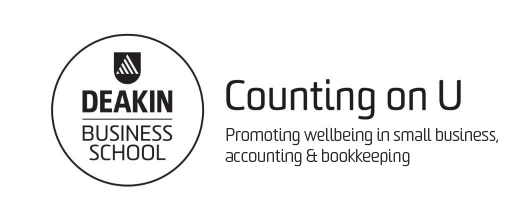Webinar #1 – Mental Health: What is your duty of care?
Counting on U Webinar #1 – Mental Health: What is your Duty of Care?
Video recording from 31 October 2022 | 12pm AEDT
Highlights and key takeaways from our panellists:
Professor Andrew Noblet – Facilitator, Counting on U (CoU) co-founder and professor in workplace wellbeing at Deakin Business School
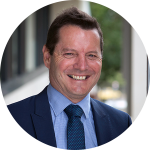 “We will be talking about a range of issues regarding mental health duty care – what does duty of care mean – is it a legal responsibility? Is it a moral obligation? Or is it somewhere in between; a professional expectation that we should be fulfilling as accountants.”
“We will be talking about a range of issues regarding mental health duty care – what does duty of care mean – is it a legal responsibility? Is it a moral obligation? Or is it somewhere in between; a professional expectation that we should be fulfilling as accountants.”
“And who is practising this duty of care? Is it an employer’s duty of care to employees or employee’s duty of care to each other and their clients? Also, what does duty of care mean in terms of ourselves – to protect and promote our own wellbeing.”
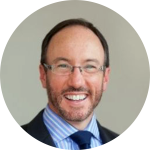 Mike Rowe – CoU alum, Chartered Accountant and Director of The Executive Hub
Mike Rowe – CoU alum, Chartered Accountant and Director of The Executive Hub
“Accountants have been red lining it for quite some time. Covid was something none of us had ever encountered before, pressures on accountants were phenomenal. It has also reshaped how clients are looking at accountants and their advisory role.”
“Clients are doing it tough… Labour shortages and supply chain issues across sectors and industries… high inflation and low household disposable incomes and the erratic weather are making most businesses nervous about the future.”
“Accountant and advisers moving forward have to look out for their own households and make sure their firms are in a strong position and able to provide that service delivery. And secondly, they need to make sure that they’re able to support their clients because they’re going to need it.”
Reflections on his experience and takeaways from the Counting on U program.
“Like many of us here, I’ve seen the posters around the break room of ‘Are U OK?’. I looked at it once and thought what if someone says ‘no’ – I wouldn’t know how to help them. From the program I feel I’ve become a better person and a better leader. It has to do with the mindset shift in terms of how I view relationships and how I view conversations.”
“I now understand how important it is to add Mental Health First Aid® (MHFA™) to the leadership toolbox.”
Key Take Home Point
“For all the business advisers, be mindful that there are a lot of lonely CEOs out there. The really simple acts that you can do, can make a massive difference.”
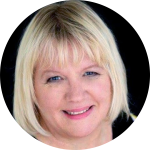 Rosey Tecklenburg – CoU alum, former president of the ICNZB and Operations Director of The Back Office Company
Rosey Tecklenburg – CoU alum, former president of the ICNZB and Operations Director of The Back Office Company
“One of the challenges coming up for bookkeepers is the question ‘what do we charge?’. Time is money, as they say, and most bookkeepers operate on billable hours, so they struggle with balancing their professional role and caring for client mental health.”
“The solution comes back to the employer… by providing a supportive environment and leading by example we can empower employees to go into these conversations with clients knowing that they have a supportive environment to fall back on.”
When asked to reflect on her CoU experience, she said:
“You are not going to walk out of CoU as a psychologist or a psychiatrist. You are going to walk out of CoU with a whole bunch of tools that you can either use in a conversation or who you can refer them to.”
Key Take Home Point
“By providing a caring, nurturing environment for people to work in, you get back exponentially of what you put it. And it trickles down to your clients.”
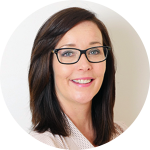 Tina Winchester – Co- Founder and Director of Mentally Well Workplaces
Tina Winchester – Co- Founder and Director of Mentally Well Workplaces
“First thing to remember is ‘why’ we need to maintain boundaries… If we start to blur the boundaries, we can become an enabler and we disempower the person we are looking to support.”
“If we provide just enough emotional support that someone can keep their head above water, they would be less inclined to seek professional support. And having your head just above the water is not enough.”
“We have to start by knowing that if our boundaries creep, then we disempower the person we’re looking to support, and we heap stressors upon ourselves that is good in terms of our own duty of care around looking after ourselves in the workplace.”
“It is okay to be assertive when supporting somebody who is struggling if you keep in the front of mind that lack of boundaries could be detrimental to the person we’re supporting. I call it empathetic assertion.”
Key Take Home Point
“You’re not responsible for everybody’s emotions and fixing everybody’s problems. You’re only responsible for your own. My call to action would be – think about what you do and say in your workplaces every day that may be contributing to a mentally healthy or a toxic workplace. How does your behaviour contribute to that as an individual? Collectively as a workplace, any opportunity that you can have to talk about mental health and wellbeing, psychological safety – start doing it!”
 Professor Angela Martin – member of the CoU Steering Committee, professor of work and mental health, University of Tasmania and Director of Pracademia
Professor Angela Martin – member of the CoU Steering Committee, professor of work and mental health, University of Tasmania and Director of Pracademia
“The WHO has brought out a new set of guidelines on workplace mental health. The International Standards Organisation has got a new standard that is part of their health and safety suite on managing psychological health and safety at work.”
“In Australia there’s been big changes in work health and safety policy. Safe Work Australia has come up with a code of practice and model regulations that are going to become legislation.”
“States and territories are moving to make it law – NSW has gone already, Victoria is due next year, Queensland is coming up and the other states and territories are going to have to follow suit.”
“Just as we have to look out for risks to people’s physical health and safety, there’s a psychological element to it. Several inquiries have found that the awareness of that expectation [of employers] was low – only 30% of leaders and business owners surveyed knew that they were expected to account for risks to psychological safety… Businesses and companies now have about 12-24 months to move on this.”
Key Take Home Point
“If you employ people, get across the [Safe Work Australia] code of practice. Start taking early steps to get ahead of the game, it could be a competitive advantage for you in recruiting staff. Remember if a goldfish is sick, you treat the water – do not forget how much a [work, family, social] environment can affect our mental health.”
OUR PANELLISTS:
PROFESSOR ANDREW NOBLET
Prof. Andrew Noblet is Chair in Organisational Behaviour with the Deakin Business School (DBS) and Director of Research in DBS’s Department of Management.
With a strong track-record in organisational health research, Andrew’s expertise lies in workplace mental health, job engagement, organisational fairness, leader-member relationships, and intervention research.
Most recently, Andrew’s work has focused on planning, implementing and evaluating strategies aimed to enhance the health of workers and their environment, and he also has expertise developing and delivering large, externally-funded research projects.
Andrew is Chief Investigator on 17 successful external grant applications including two ARC Linkage grants, two NHMRC Partnership grants and six large grants from federal and state-based funding bodies (Department of Industry, Science, Energy & Resources; WorkSafe Victoria; Beyond Blue; VicHealth; ISCRR; Department of Health and Human Services, and ABS).
TINA WINCHESTER
With more than 25 years’ experience mental health services across both Australia and the UK, Tina is an accredited ‘Principal Master’ Mental Health First Aid® Instructor & co-creator of Australia’s first Workplace Mental Health Induction.
Her passion includes advocating for the creation of more mental health awareness in workplaces across the country which includes helping employees identify, cope with, and address mental health issues at work.
Originally from the UK, Tina’s experience includes service Improvement across primary, secondary and tertiary services in both inpatient and community settings.
She has worked closely with the Department of Health and Department of Psychiatry in the UK, heading up Service Improvement Projects to support the National Service Framework for Mental Health.
A co-founder and director at the Career Development Centre, Mentally Well Workplaces, Tina is Head of Employee Assistance Programs and regularly delivers MHFA™ public and corporate courses, conducts corporate mental health workshops, speaks at a wide range of seminars and events.
PROFESSOR ANGELA MARTIN
Prof. Angela Martin is the founder and principal consultant of Pracademia.
She holds current part-time and honorary professorial appointments with the Menzies Institute for Medical Research and the College of Business and Economics, University of Tasmania.
With a 20-year academic career, Angela has worked within a number of Australian universities where she’s built strong national and international collaborations and held leadership roles that include Graduate Research Co-ordinator, Discipline Leader and Associate Dean Research.
She is internationally-recognised for her research on the relationships between work and mental health and has received a national teaching award for her work on the development of psychological wellbeing management capabilities via executive education.
Engaged in knowledge translation, research co-production and research impact strategy development, Angela has developed insight into the processes and outcomes of knowledge mobilisation and exchange that are key to Pracademia’s mission.
ROSEY TECKLENBURG
Former President of the ICNZB, Rosey Tecklenburg is a highly-experience bookkeeper who brings a contemporary New Zealand business adviser perspective. She is currently Operations Director at NZ bookkeeping organisation The Back Office Company.
With more than 20 years’ experience in SMEs, accounting, operations and administration management, Rosey’s skills also incorporate human resources, payroll, and business management.
Rosey has a passion for people-focused training systems and brings her energy and enthusiasm for best booking-keeping practice to corporate business training programs.
Qualified in Adult Teaching and Learning, she thrives on reconciliation work, business processes and efficient office systems.
MIKE ROWE
Mike Rowe is a Chartered Accountant and co-owner and Director of The Executive Hub – a management consulting firm connecting leaders through executive roundtables, leadership development programs and management advisory services.
Having trained at KPMG Australia, Mike moved to London in 1995 where he undertook commercial and strategic roles in the technology, finance and professional service sectors. Having worked with companies such as Microsoft, Rabobank and Dell, Mike was the co-founder of a consulting and compliance firm that focused on delivering strategic and commercial solutions to the SME sector. Mike returned to Australia in 2015 as an adviser at Deloitte and more recently as CEO of a mid-tier accounting firm.
Mike is enthusiastic about mentoring the next generation of leaders and creating safe and supportive business environments that enable people to be the best they can be!
Get In Touch
Here are our contact details if you would like to get in contact with us or your member body about Counting on U.
CAANZ: www.charteredaccountantsanz.com/countingonu
CPA: [email protected]
IPA: [email protected]
ICB: [email protected]
FPA: [email protected]
AFA: [email protected]
ICF Australasia Charter Chapter: [email protected]
NZQBA: [email protected]
Deakin Research Team: [email protected]
